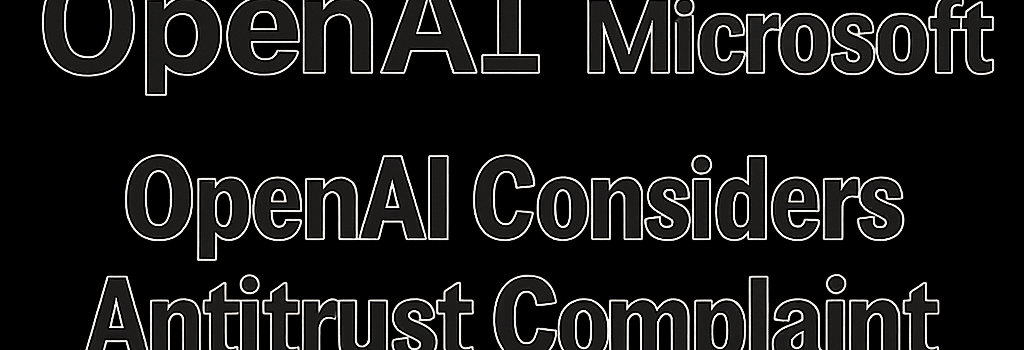OpenAI Considers Antitrust Complaint Against Microsoft Over Cloud Issues

In a dramatic escalation of one of the tech industry’s most consequential partnerships, OpenAI executives have discussed filing an antitrust complaint against Microsoft, according to a Wall Street Journal report. The proposed action would target Microsoft’s dominance in cloud infrastructure and contractual terms that may stifle competition in the artificial intelligence sector.
Background: A Transformative AI Alliance
Since Microsoft’s initial $1 billion investment in OpenAI in 2019, the two organizations have forged a deep collaboration to advance large language models and AI-driven applications. Microsoft holds exclusive rights to host flagship OpenAI models—such as GPT-4 and GPT-4 Turbo—on its Azure platform, leveraging specialized GPU clusters like the ND A100 v4 with 400 GB of high-bandwidth memory per node and InfiniBand networking for sub-microsecond latency.
Governance Restructuring at Impasse
OpenAI’s proposed conversion from a capped nonprofit to a Delaware-based public benefit corporation has become a flashpoint. Under the plan, the for-profit arm would adopt a charter prioritizing both mission and returns. Sources tell us that OpenAI is asking Microsoft to accept a 33 percent equity stake in the restructured entity, in exchange for relinquishing certain future profit rights and easing exclusivity clauses.
“Microsoft’s cloud exclusivity was critical during our scale-up phase,” said an OpenAI engineer. “But long-term competition demands more flexible hosting options.”
Regulatory Landscape and Antitrust Considerations
The US Federal Trade Commission launched a review of the partnership in 2024. Competitors including Google argued that Microsoft’s $13 billion investment and exclusive hosting deal created a barrier to entry for rivals wishing to deploy advanced models. The potential complaint could invoke Section 2 of the Sherman Act, alleging abuse of monopoly power in Infrastructure as a Service (IaaS).
- Market share: Azure controls an estimated 20–25 percent of the global cloud market.
- Technical leverage: Exclusive access to secure enclave hardware for model training.
- Contract terms: Renewal windows and revenue-share thresholds that can deter competitors.
Technical Infrastructure and Multi-Cloud Strategy
In January 2025, OpenAI diversified its compute supply by adding Google Cloud’s A2 instances powered by NVIDIA A100 GPUs, securing an additional 500 petaflops of AI performance. This multi-cloud approach also underpins the Stargate Project, a $500 billion initiative to build dedicated on-premises AI data centers using liquid-cooled GPU racks and proprietary high-speed interconnects.
Expert Opinions and Industry Implications
Margaret Miller, principal analyst at TechInsights, commented: “If OpenAI files an antitrust suit, it could reshape cloud competition rules. We might see mandated interoperability or forced divestitures of exclusive model-hosting agreements.”
Strategic Alternatives and Future Scenarios
- Renegotiate Partnership: Microsoft could amend exclusivity in exchange for a larger equity share.
- Expand Multi-Cloud: OpenAI may formalize partnerships with AWS and GCP to dilute Microsoft’s leverage.
- Pursue Public Listing: A future IPO of the public benefit corporation would introduce new governance dynamics.
Conclusion
The unfolding tensions between OpenAI and Microsoft underscore the challenges of scaling frontier AI within existing corporate structures. As both companies prepare for potentially protracted negotiations and regulatory scrutiny, the broader AI ecosystem watches closely—anticipating how antitrust law, cloud infrastructure, and governance models will evolve in tandem.